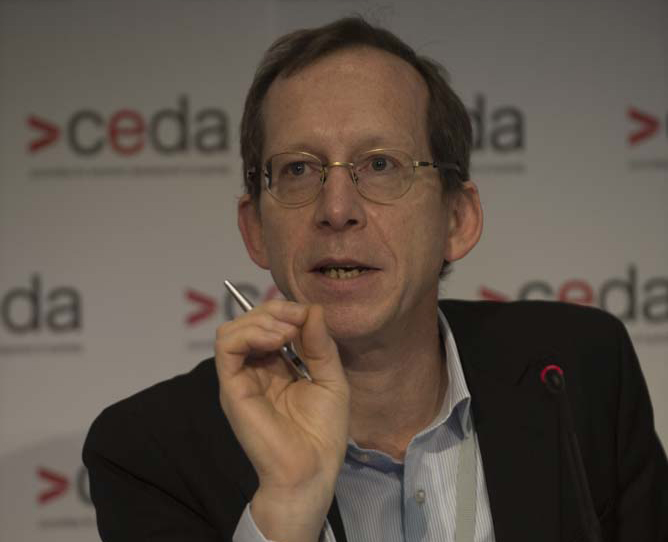PROGRESS 2050: Toward a prosperous future for all Australians
12/10/2016

Speaking at the Social innovation and competition in human services session at CEDA’s State of the Nation conference, Professor King said at least two key parties need to innovate in the sector – the providers and government – and without government innovating, the providers can’t innovate.
“The starting point in my opinion for thinking about human services is to think about where can we allow more user choice.
“How do we then design a system that enables the users of the services to be empowered to choose the services that best suit their needs.
“Once we’ve got that focus we can then ask how do we provide the choices for those individuals.”
Professor King said that could be through a competitive system where we have alternative providers in the marketplace or a more contestable type approach where government chooses who can provide, such as through a government tender, and possibly what the range of services are that are available for the users.
“User choice, with a competitive backdrop means that, like in other markets, we will see different providers, not-for-profits, mutuals, government and to mention the evil word in some people’s ears, for profit companies, being motivated by the users of the services to meet the needs and requirements of those users.”
However, Professor King said user choice, competition and contestability are not always appropriate in the sector, giving the example of a women with children needing emergency accommodation, or someone requiring emergency medical treatment.
The Difference Incubator Co-Founder and Chief Executive, Bessi Graham said government needed to provide clarity on what the outcomes should be.
“Financing something once you have designed and structured it well is not a problem – there is plenty of money out there in the market looking for places to invest in things that make sense,” she said.
“What we need to do is have government actually driving real clarity around what are the outcomes that we want to see achieved, how will we measure and know if they have been achieved, and what are we willing to pay if they are achieved. It is that simple, (and that) complicated.”
Payment by outcomes is the area “we really need government to step up and show leadership”, she said.
“The design component of what we do with our policy, with our funding, our interventions is critical and having an eye for designing that in a way that incentivises the right behaviour, I think is a much broader conversation – and far more complex and nuanced than people are having at this point.”
Australian Unity Group Managing Director and CEO, Rohan Mead said: “The really challenging thing for government is to contemplate a world that they don’t recognise and understand.
“How do we build up in government techniques and capacities to commission on a basis for the unimagined?” he said.
“Surely practically that means that you have to go back to the participate, the client, the patient and make them the centre of the measurement activity and you have to go to outcomes not processes, which too often are much easier.”
Responding to a question on migration to meet growing workforce needs to meet aged care and health requirements of our population, Mr Mead said worker demand was expected to grow significantly in the sector.
“When we look ahead in terms of health care and social assistance the broad areas of activity we see in areas like aged care, elements of community care and health and so on, something like a million net new workers (will be) needed over the next 10 years,” he said.
“When you think of the average age of the working nursing workforce in Australia, so for example being in their 50s … that is also very significant.”
He said in addition to skilled workers we also need personal care aides, laundry workers, semi-skilled, low-skilled and entry level positions.
“At some stage we may need to have a conversation with the community about a labour migration program, as opposed to a skilled migration program” to meet the growing workforce needs, he said.
However, Mr Mead said further information and data was needed first.
